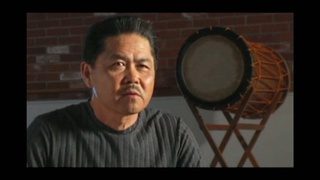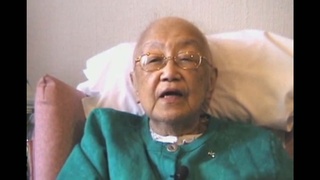Interviews
Reason to come back to Canada in 1954
Well, it's much easier living here. Far better. Japan, although they lost the war, was pretty well still a closed society. The company structure was more feudalistic, the construction company was really feudalistic. If you weren't a relative of the founder or anything, why, you'd never get to the top. So it was much easier to make a go of it in Canada, so I came back. And I think I made the right decision. Sure, after I left, Japan embarked on an industrial come back, and you know how prosperous she is now. Now it makes me wonder whether thing, but no, it's hard for me to make the thing because I, I went to Japan when I was sixteen, and I still had the customs, Canadian customs. And it's hard to get used to Canadian society and life per se. So my judgment was this is probably better if I went back to Canada and started over again.
Date: October 29, 2005
Location: Toronto, Canada
Interviewer: Norm Ibuki
Contributed by: Sedai, the Japanese Canadian Legacy Project, Japanese Canadian Cultural Center
Explore More Videos




Family interrelations between mother and father
(1926 - 2012) Scholar and professor of anthropology. Leader in the establishment of ethnic studies as an academic discipline


Going back to Hawaii
An expert researcher and scholar on Japanese immigrant clothing.

Picture brides and karifufu
An expert researcher and scholar on Japanese immigrant clothing.

Grandmother's influence on decision to go to Japan
(b.1942) Japanese American ceramist, who has lived in Japan for over 30 years.

Impression of Japan upon arrival
(b.1935) American born Japanese. Retired businessman.

Working at the magazine
(b.1948) Nikkei from Southern California living in Japan.

Kibei schoolchildren in Hiroshima, Japan
(b.1913) Kibei from California who served in the MIS with Merrill’s Marauders during WWII.

The reason he came to the United States (Japanese)
(1949 - 2019) Taiko player. Founded five taiko groups in Southern California

Grandfather's arrival in the U.S., experiencing discrimination
(b. 1939) Japanese American painter, printmaker & professor

Mother's immigration to U.S. as a treaty merchant
(b. 1927) Japanese American Nisei. Family voluntarily returned to Japan during WWII.

Why her parents came to Canada
(1918-2004) Interned in Slocan during World War II. Active member of the Japanese Canadian community.
